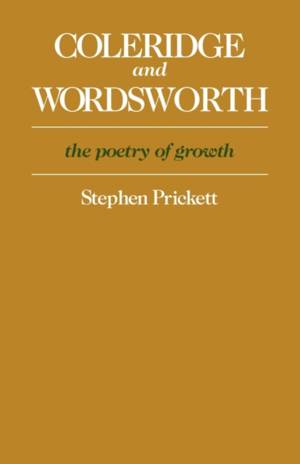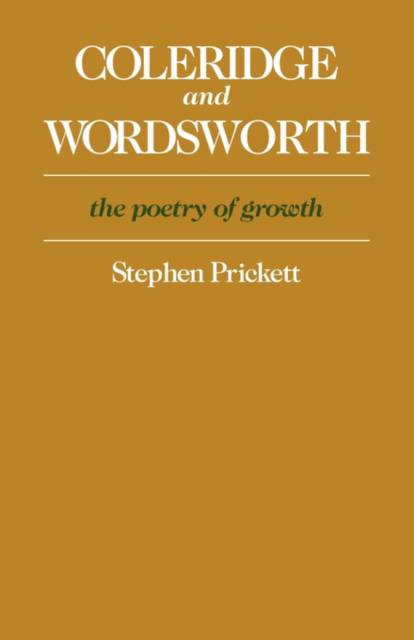
- Afhalen na 1 uur in een winkel met voorraad
- Gratis thuislevering in België vanaf € 30
- Ruim aanbod met 7 miljoen producten
- Afhalen na 1 uur in een winkel met voorraad
- Gratis thuislevering in België vanaf € 30
- Ruim aanbod met 7 miljoen producten
Zoeken
€ 60,95
+ 121 punten
Uitvoering
Omschrijving
Originally published in 1980, this is a study of the 'romanticism' of Coleridge and Wordsworth. Their concern with creativity, and the conditions that helped or hindered their own artistic development, produced a new concept of mental growth - a 'modern' view of the mind as organic, active, and unifying. In particular, we see how their aesthetics evolved from a personal and intuitional need to reaffirm 'value' in their own lives. Their discovery of the fundamental ambiguity of such intuition is discussed in relation to some ideas of Empson, Gombrich, and Ehrenzweig. As well as an essay in criticism, this is a contribution to the history of ideas, drawing together points in the background of philosophical and psychological theory from Hartley and Wesley to John Stuart Mill. Since many of our ideas about imagination, symbolism, and creativity are ultimately derived from Coleridge and Wordsworth, this is a book for students of romantic and modern literature.
Specificaties
Betrokkenen
- Auteur(s):
- Uitgeverij:
Inhoud
- Aantal bladzijden:
- 224
- Taal:
- Engels
Eigenschappen
- Productcode (EAN):
- 9780521298094
- Verschijningsdatum:
- 30/04/1980
- Uitvoering:
- Paperback
- Formaat:
- Trade paperback (VS)
- Afmetingen:
- 140 mm x 216 mm
- Gewicht:
- 290 g

Alleen bij Standaard Boekhandel
+ 121 punten op je klantenkaart van Standaard Boekhandel
Beoordelingen
We publiceren alleen reviews die voldoen aan de voorwaarden voor reviews. Bekijk onze voorwaarden voor reviews.











